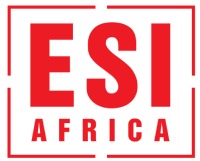Africa accelerates Mission 300 with 17 new energy compacts
AfDB states that 30 million people have already been connected, with more than 100 million in the pipeline since the launch of Mission 300
Mission 300 took a major step forward this week with the unveiling in New York of a second batch of National Energy Compacts by seventeen African countries.
This brings the number of countries that have now finalised their compacts to 29. The compacts are comprehensive documents outlining data-driven targets, policy measures, and resource commitments by African governments, all aimed at achieving the overall objective of Mission 300.
The launch event took place at the Bloomberg Philanthropies Global Forum, on the sidelines of the 80th United Nations General Assembly.
Compact development and implementation are country-led, with an emphasis on engagements with local communities and civil society groups, as well as rigorous mechanisms for monitoring progress.
The African Development Bank Group (AfDB) states that 30 million people have already been connected, with more than 100 million in the pipeline since the launch of Mission 300.
Cohort 2 of Mission 300 launched their energy compacts
The seventeen countries that launched their energy compacts on Wednesday, 24 September, collectively referred to as “Cohort 2”, are Benin, Botswana, Burundi, Cameroon, Comoros, the Republic of the Congo, Ethiopia, Gambia, Ghana, Guinea, Kenya, Lesotho, Mozambique, Namibia, São Tomé and Príncipe, Sierra Leone, and Togo.
They join the first cohort of twelve countries which unveiled their compacts at a high-level summit to kick off Mission 300 in Dar es Salaam, Tanzania, in January 2025, attended by 48 national delegations, including 21 Heads of State and Government.
President of Botswana, Duma Boko, stated, “This National Compact is our shared pledge to ensure accessible, reliable and affordable energy as a basic human need, to transform our economy and create jobs, and to electrify our journey to an inclusive high-income country.”
Faure Essozimna Gnassingbé, President of the Togolese Republic, said, “We guarantee reliable, affordable and clean electricity for all, and access to clean cooking. This Compact massively mobilises the private sector to accelerate our industrialisation and make Togo a competitive energy hub.”
In his opening remarks, Ajay Banga, President of the World Bank Group, noted that the first batch of compacts identified over 400 policy actions aimed at strengthening utilities, simplifying regulation, reducing losses, and improving the business environment.
“The progress is measurable. Because of M300, 30 million people are already connected in our partnership with the African Development Bank and others. A pipeline to reach more than 100 million additional people is already moving through procurement, through financing and through construction.”
AfDB President Dr Sidi Ould Tah said they are highly committed to speed, synergy, scale, and impact. He said the significance of M300 lies both in its high ambitions as well as its emphasis on collaboration, “bringing for the first time a variety of partners, including private sector philanthropies” to bridge Africa’s energy access gap.
Cover photo: 17 African governments signed Energy Compacts under the Mission 300 initiative on the margins of UNGA 80. New York, September 2025 Image source: AfDB


